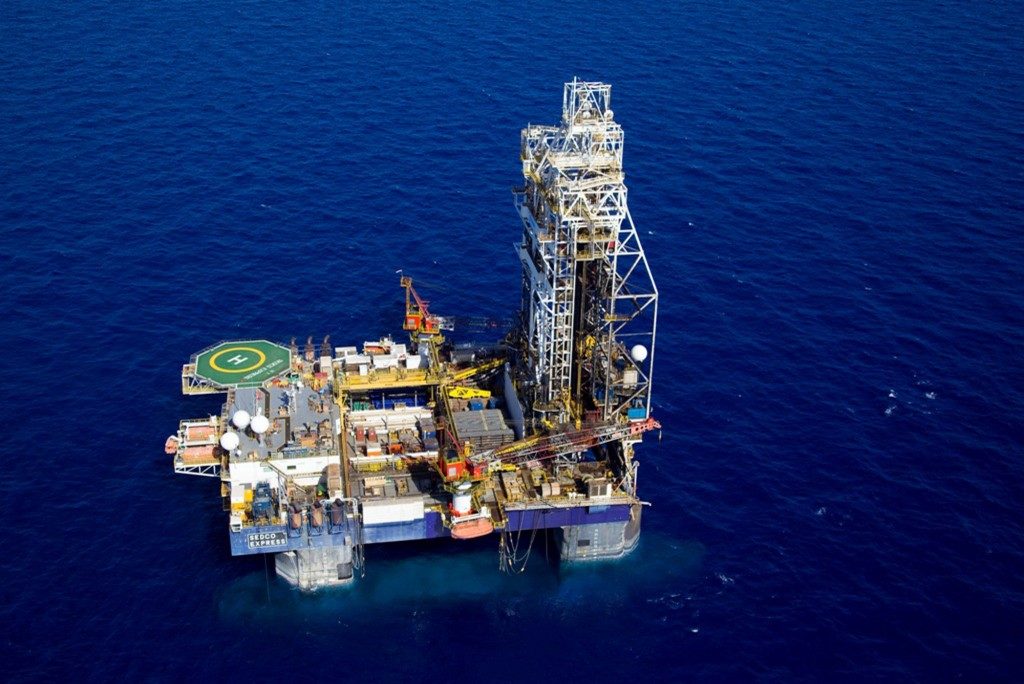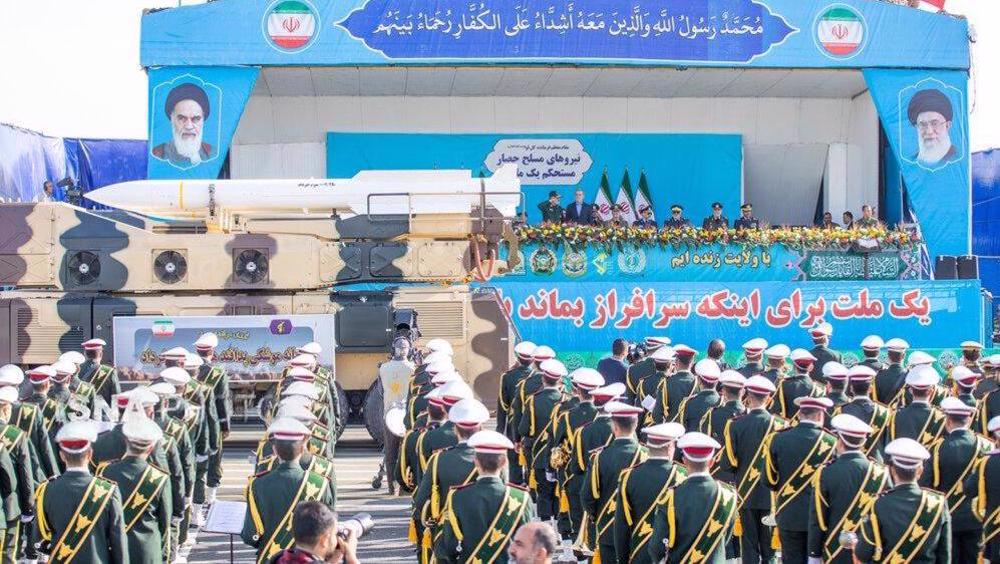FRESH AIR
UPDATES
A new milestone – Israel begins exporting gas
March 9, 2017 | Shmuel Levin

Shmuel Levin
“Let me tell you something that we Israelis have against Moses. He took us 40 years through the desert in order to bring us to the one spot in the Middle East that has no oil!” – Former Israeli Prime Minister Golda Meir
Whilst Israel has long bemoaned its scarcity of natural resources, now, for the first time in its almost 70 years of existence, Israel has begun quietly exporting natural gas to other countries.
Israel and natural gas
Israel first began producing its own domestically sourced natural gas in 2000, with the discovery of two small gas fields off the coast of Ashkelon in 1999. At their peak, these two fields, known as Noa and Mari-B, constituted approximately 40% of Israel’s domestic natural gas demands. This lasted until 2012, when production plummeted as the gas fields entered their final stages of depletion.
Then, ten years after the initial discovery of natural gas, two far larger gas fields were discovered in the Mediterranean Sea. Compared to the previous gas fields which only contained approximately one trillion cubic feet of natural gas, the Tamar gas field contains an estimated 8.4 trillion cubic feet and the Leviathan gas field contains more than double this, at approximately 20 trillion cubic feet.
Historically, Israel has relied almost entirely on imports of coal, natural gas and oil for its energy needs. In 2012, Israel consumed 15 million short tons of coal a year, including some from Australia. That figure is now on the decline as “Israel’s natural gas sector continues its rapid growth and natural gas-fired generating capacity supplants coal-fired generating capacity”. Natural gas is also far more efficient than coal and oil, producing almost 20 per cent more electricity, and it is more environmentally friendly.
Not only is Israel now increasingly able to supply its own energy needs with natural gas, but it also has sufficient natural gas to become a regional exporter.
After much diplomatic and domestic political wrangling, Israel decided to keep 60% of its natural gas for domestic use, which is enough to secure its needs for 25 years, and to export the remaining 40%.
Now those exports have begun.
The Israel-Jordan natural gas deal
In recent weeks, Israeli media has reported that Israel quietly began exporting natural gas to Jordan. According to Haaretz, the Jordanian state-owned Arab Potash and Jordan Bromine “signed an accord three years ago to buy the gas from Israel’s Tamar gas field in a 15-year, US500 million deal, with the US State Department acting as a go-between”.
Prior to Israel’s discovery of natural gas, both Jordan and Israel imported natural gas from Egypt. Egypt first began supplying Israel with natural gas in 2008 under a 20-year agreement signed with Egypt’s former-President Hosni Mubarak. However, this became unsustainable after Egypt’s gas pipelines were repeatedly attacked during the Arab Spring.
Moreover, despite signing an agreement with Israel in 2005 that would ensure a continuous flow of gas from Egypt to Israel, the new Egyptian regime of 2011 chose to ignore the agreement and allowed Egyptian companies to cancel the gas supply agreement. As a result the Israeli economy suffered huge economic damage – direct damage alone was estimated at NIS 20 billion (A$7 billion), and electricity bills rose 25% as Israel had to purchase more expensive fuels to compensate.
In addition, following Mubarak’s ouster, Egypt’s public prosecutor announced that several former government officials would face charges “of squandering public funds in connection with the gas sale” as part of a broader investigation of graft during Mubarak’s years in power.
For Israel, this provided a ripe opportunity to switch to its newly found natural gas. Given the volatility in Egypt, Jordan initially also sought to source its own domestically produced natural gas, but this was abandoned after energy giant BP found no technical basis for a Jordanian gas project, and Jordan then turned to Israel. Nevertheless, Israel is still technically selling the natural gas to Jordan through a third-party American company, NBL: Eastern Mediterranean Marketing. In addition, Israeli media has reported a letter signed by Prime Minister Benjamin Netanyahu and Energy Minister Yuval Steinitz under which Israel “committed to Jordan that it will give Jordanian natural gas needs preference over Israel’s in times of shortages”.
In February 2017, Israeli Energy Minister Yuval Steinitz stated that Israel had earned 3 billion shekels (A$1.05 billion) exporting natural gas over the previous year.
The Leviathan gas field
In addition to the Tamar gas field, two partners in the Leviathan gas field – Noble Energy Inc and Delek Drilling LP – signed an export agreement with Jordan’s Natural Electric Power Co. (Nepco) in late 2016. Under this deal, the two partners will supply Nepco with “a gross 1.6 trillion cubic feet of natural gas from the Leviathan field over a 15-year period.”
Following the announcment of the agreement, hundreds of Jordanians demonstrated in the centre of Amman against the deal. The protestors carried signs saying “No to gas imports from the Zionist enemy” and chanted “Gas from the Zionists is a disgrace.”
Similar protests also erupted two years earlier in 2014 following the signing of a preliminary letter of intent. At that time, Jordanian Minister of Energy and Natural Resources Mohammed Hamed defended the deal in the Jordanian Parliament on grounds that it would save Jordan US$1.5 billion a year, would “not constitute a political risk for Jordan, and will not make it dependent on the goodwill of a single country.” Seemingly, the latter point was a reference to the difficulties arising from Egypt’s upheavals.
While recent reports indicate that negotiations between Jordan and Israel have encountered some snags, if all goes to plan, Israel is expected to begin supplying Jordan with natural gas from the Leviathan gas field in 2019 or 2020.
Israel’s long route to natural gas
Israel’s journey to producing natural gas has not been without hiccups.
In early 2014, Woodside Petroleum Ltd., Australia’s second-biggest oil and gas producer, scrapped an agreement to buy a quarter of the Leviathan gas field for as much as US$2.6 billion after talks to complete the deal collapsed.
Then, in late 2014 Israel’s antitrust regulator threatened to force Noble Energy and its partners to sell their stakes in the Leviathan gas field. The then Antitrust Commissioner David Gilo argued that “the entry of Delek and Noble into Leviathan has created a situation in which these groups control all the gas reserves on the coast of the state of Israel”. This would effectively eliminate all competition and allow them to overcharge consumers for gas.
In 2015, this came to a head when Gilo resigned from his position as antitrust commissioner following various failed attempts to reach a compromise.
Whilst the Antitrust Authority’s decisions are generally binding on the government of the day, a never before used clause 52A in the Antitrust Law grants the Economics Minister powers to override decisions with “sensitive strategic or diplomatic implications”. Despite promising not to invoke this clause, Economy Minister Aryeh Deri changed his position following Gilo’s resignation, stating that he would use this power, given that the cabinet and Knesset both had approved the framework.
Israel as an energy superpower
The advent of Israeli natural gas has the potential to be a regional game-changer.
For example, a new positive rapport is emerging between Turkey and Israel despite a history of strained relations in recent years. More than half of Turkey’s supply of natural gas comes from Russia. However, after Turkey-Russia relations soured with the downing of a Russian jet over Turkey in 2015, Turkey began to reconsider its energy needs and to look for alternative energy sources. Israel and Turkey have now agreed to open discussions on building a gas pipeline to pump Israeli gas through Turkey. This could also be expanded to allow export of Israeli natural gas to Europe via Turkey.
Elsewhere, a series of blunders have led Egypt to seek gas from elsewhere, despite it having double the gas reserves of Israel. As such, the Leviathan partnership has signed letters of intent to export gas to BG Group’s liquefied natural gas (LNG) facility in Egypt, and the Tamar partnership has signed a letter of intent with Union Fenosa Gas to supply the Spanish company’s LNG facility, also located in Egypt.
However, none of these letters are binding and Israel is competing with other exporters like Qatar and Algeria. Whilst a final deal with Egypt has not yet been reached, it is still significant that the once exporter state is at least considering importing gas from Israel.
Domestically, the deal sets Israel free from its reliance on volatile and hostile regional partners. Israel has also established a new sovereign wealth fund to manage the expected windfall.
Whilst Golda Meir may have rightfully bemoaned Israel’s lack of oil, almost half a century later the Land of Milk and Honey is perhaps emerging as also a Land of Natural Gas.
Tags: Egypt
RELATED ARTICLES

Enormous hope that Iran is being liberated: Colin Rubenstein on Sky News

He survived Bondi. Now he’s fighting back: Arsen Ostrovsky addresses AIPAC conference





















